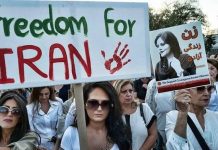We need a new anti-terror strategy
Tariq Alhomayed /Asharq Al Awsat
Saturday, 10 Jan, 2015
The Paris attack on Charlie Hebdo and the subsequent events in France serve as an unfortunate reminder that the threat of terrorism is a real and present danger, and that nobody is safe from it.
Today, it is difficult to completely secure capitals or major cities, and this is something that can be seen in all the major terrorist attacks that have struck urban centers over the years. What is even more dangerous is that terrorists are now seeking the softest targets in order to maximize the death toll as much as possible. Targets now are chosen based on their propaganda value in order to secure the highest level of media coverage. The latest attacks, for example, have granted Al-Qaeda media coverage that the victims of Assad’s terrorism in Syria can only dream about.
What happened in France confirms, once again, that there must be a real resolution to this phenomenon of terrorism—not just a temporary solution, with the world going about its business as it was before. What happened in France this week recalls the deadly Mumbai attacks of 2008, particularly with regards to the prolonged pursuit of the terrorist attackers. What we need to do now, in the aftermath of this terrible attack, is review the way that terrorism is dealt with internationally, and put forward an entirely new comprehensive strategy to deal with it. This strategy should be based on dealing with the hotbeds of conflict that are feeding this terrorism phenomenon, whether we are talking about Iraq or Syria, Yemen or Lebanon, or Somalia.
When we look at what happened in France, we can easily recall other terrorists attacks that have taken place around the world in quick succession: the Saudi-Iraqi border attack carried out by the Islamic State of Iraq and Syria (ISIS) earlier this week; the suffering of the Syrian people at the hands of the Assad regime; the Parliament Hill shootings in Ottawa last year. Terrorism is a global phenomenon.
Today, we must target the conflict zones that incubate this deadly phenomenon, as well as enact new laws to deal with incitement to hatred and violence. If restricting the financing of terrorism is vital; no less vital is the confronting of all those who justify terrorism and the ideology that goes with it. This comes at a time when social media has, unfortunately, become an important stage where this kind of hate-filled extremist ideology is being spewed and promoted. The issue here is not just prevention but deterrence—freedom of opinion is different from inciting and justifying hatred and terrorism.
The major problems facing the world today is that terrorism, like any phenomenon, is developing and mutating. Therefore, confronting this requires quick reactions and thinking outside the box. So the issue now must go beyond monitoring and targeting terrorist financing; we must confront the foundations of this terrible phenomenon. Every state must be responsible for what is happening in their region, but within the framework of a new global effort to deal with this threat.
The international community must work together to deal with these hotbeds of conflict, and confront the countries that are facilitating this dangerous situation, particularly Syria and Iran. There must be a decisive international stand against terrorism, particularly as, if the signs are to be believed following the events in France, things will get worse before they get better




















